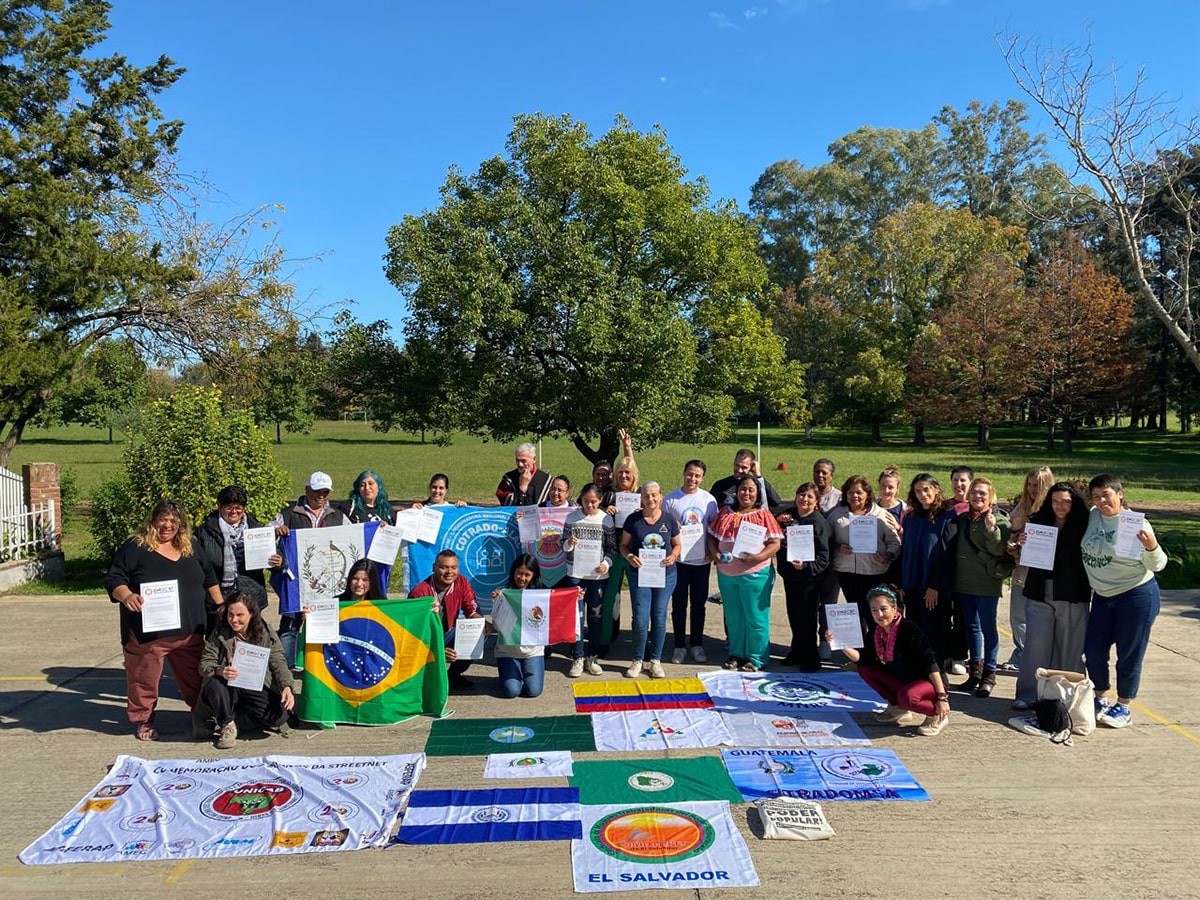By: Carlos Sanchez, COTRADO ALAC Regional Coordinator
Between May 5 and 10, a training of trainers cycle was launched in Buenos Aires, organized by WIEGO and attended by approximately 20 Latin American leaders from HomeNet International (COTRADO ALAC), StreetNet International, the Global Alliance of Waste Pickers, and the International Domestic Workers Federation.
This activity was carried out in collaboration with ENOCEP (Argentina’s National School of Community Organization and Popular Economy) and Unión de Trabajadores de la Economía Popular (Union of Workers of the Popular Economy – UTEP).
The objectives of the workshop were:
- To share our experiences and challenges as informal workers.
- To analyze those experiences through our perspectives on gender, race, class, and migration.
- To understand workers’ education as a tool to strengthen our collective power.
- To develop skills and build confidence to facilitate learning among our members and other workers, using democratic methods that promote collective awareness.
- To plan and implement learning activities aligned with our organizational mandate.
- To develop the habit of documenting our learning —both individual and organizational— and reflecting on it to strengthen our organizations.
Learning about the experiences of local organizations —in this case, UTEP— was particularly relevant and insightful, as it allowed us to gain a deeper understanding of the popular economy and how workers’ organizations in Argentina have developed various forms of collective organization and worker cooperatives.
Currently, under a new ultra-liberal political regime, these organizations have been weakened, as public opinion has shifted toward electing a government that is dismantling the state’s social policies—hard-won through the struggles of social movements. Recognizing these realities is especially important when addressing union education, as ideological voids among the population can lead to unexpected shifts in public will, resulting in political setbacks that undermine efforts to build collective power.
The Argentine experience shows us that it is not only essential to understand the reality around us, but also to carry out a critical assessment of that reality. To do so, we need analytical tools that allow us to anticipate changes that could affect workers’ interests. Likewise, the exchange among leaders from different networks fostered bonds and friendships that went beyond simple workshop participation.
This training not only provides methodological tools, but also aims to address theoretical gaps that will be further explored in upcoming virtual sessions.
For COTRADO ALAC, the experience was a valuable one, as it allowed us to build an education team made up of sisters with diverse backgrounds in popular education. This, in turn, enables us to launch a regional training plan for our organizations.
In fact, in the coming days, COTRADO ALAC will discuss a proposal for political capacity building and skills training that will require both human and technical skills for its implementation.
Finally, we would like to express our gratitude to the organizing team and to the sisters and brothers from WIEGO, UTEP, MTE, and ENOCEP, who delivered an activity of outstanding political and human quality. Beyond empowering grassroots workers, it allows for the development of collective power to be far more than just a matter of simple arithmetic.



